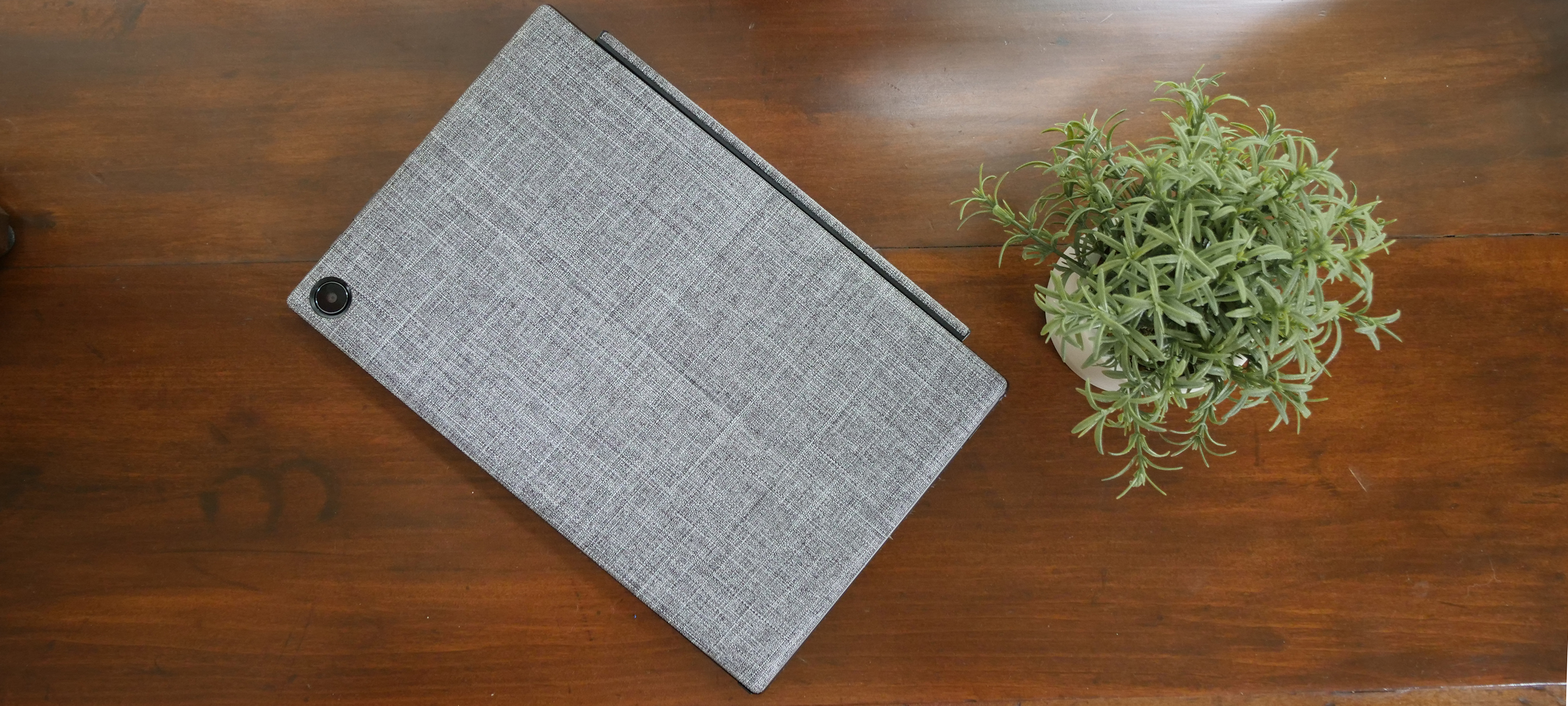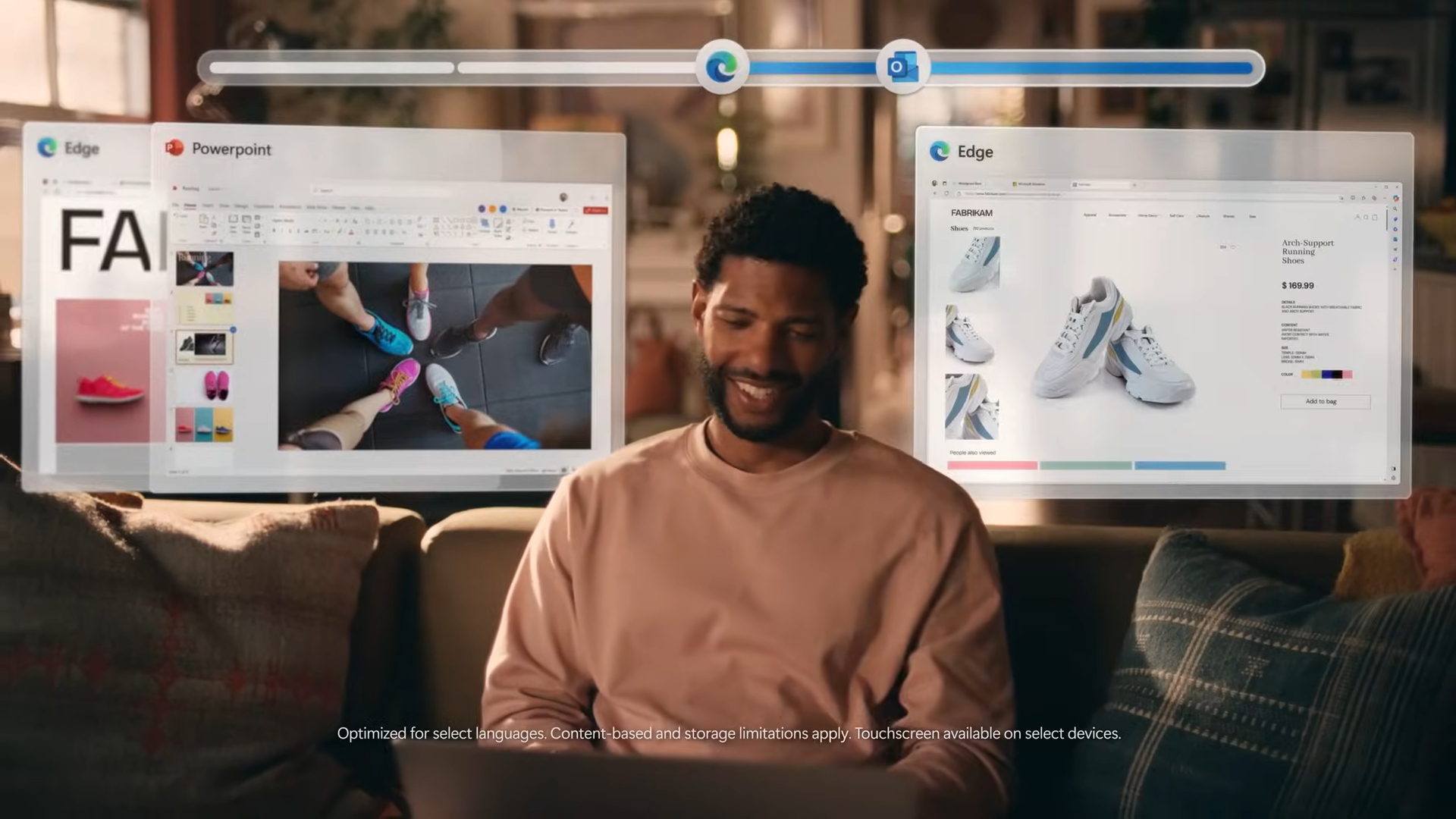Laptop Mag Verdict
The Asus Chromebook Detachable CM3 isn’t the most powerful Chromebook, but its diminutive size, long battery life, versatile 2-in-1 form factor, and stylish looks may win you over.
Pros
- +
Excellent battery life
- +
Detachable 2-in-1 design
- +
Durable
- +
Built-in stylus
Cons
- -
Relatively expensive
- -
Weak performance for the price
Why you can trust Laptop Mag
Price: $329 ($389 as reviewed)
CPU: MediaTek MTK 8183
GPU: Integrated Arm Mali-G72 MP3
RAM: 4GB LPDDR4X
Storage: 128GB eMMC
Display: 10.5-inch, 1900x1200-pixel touchscreen
Battery: 11:41
Size: 12.7 x 8.9 x 0.68 inches
Weight: 2 pounds (with keyboard/case); 1.1 pounds (tablet only)
The Asus Chromebook Detachable CM3 cloaks itself in the guise of a tweed-bound journal. However, lift the cover and you’ve unlocked a versatile 2-in-1 laptop that happens to include a stylus in case you did want to do some journaling.
While the Detachable CM3 isn’t the most powerful of Chromebooks, its vibrant display and convenient form factor make it an excellent content consumption and web browsing device that can easily slip into any bag. While it’s pricey for having a MediaTek processor inside, the CM3 makes up for it with nearly 12 hours of battery life and a durable chassis.
While Chromebooks can start to feel like an endless sea of nondescript budget laptops, the Detachable CM3 feels like a rogue wave of clever ideas that, with just a bit more power behind it, is easily among the best Chromebooks and best laptops under $500 available today.
Asus Chromebook Detachable CM3 price and configuration options
The Asus Chromebook Detachable CM3 is offered in two configurations: the base model is $329 and includes a MediaTek MTK 8183 processor, integrated graphics, 4GB of LPDDR4X RAM, 64GB of flash memory, and a 1920 x 1200-pixel touchscreen.
The only upgrade available doubles the eMMC storage to 128GB, which bumps the price up to $389; that is the model that I tested for this review.
While the tablet has an aluminum chassis in a Mineral Grey finish, a magnetic case and keyboard are included with a stain-repellent lighter grey fabric exterior.
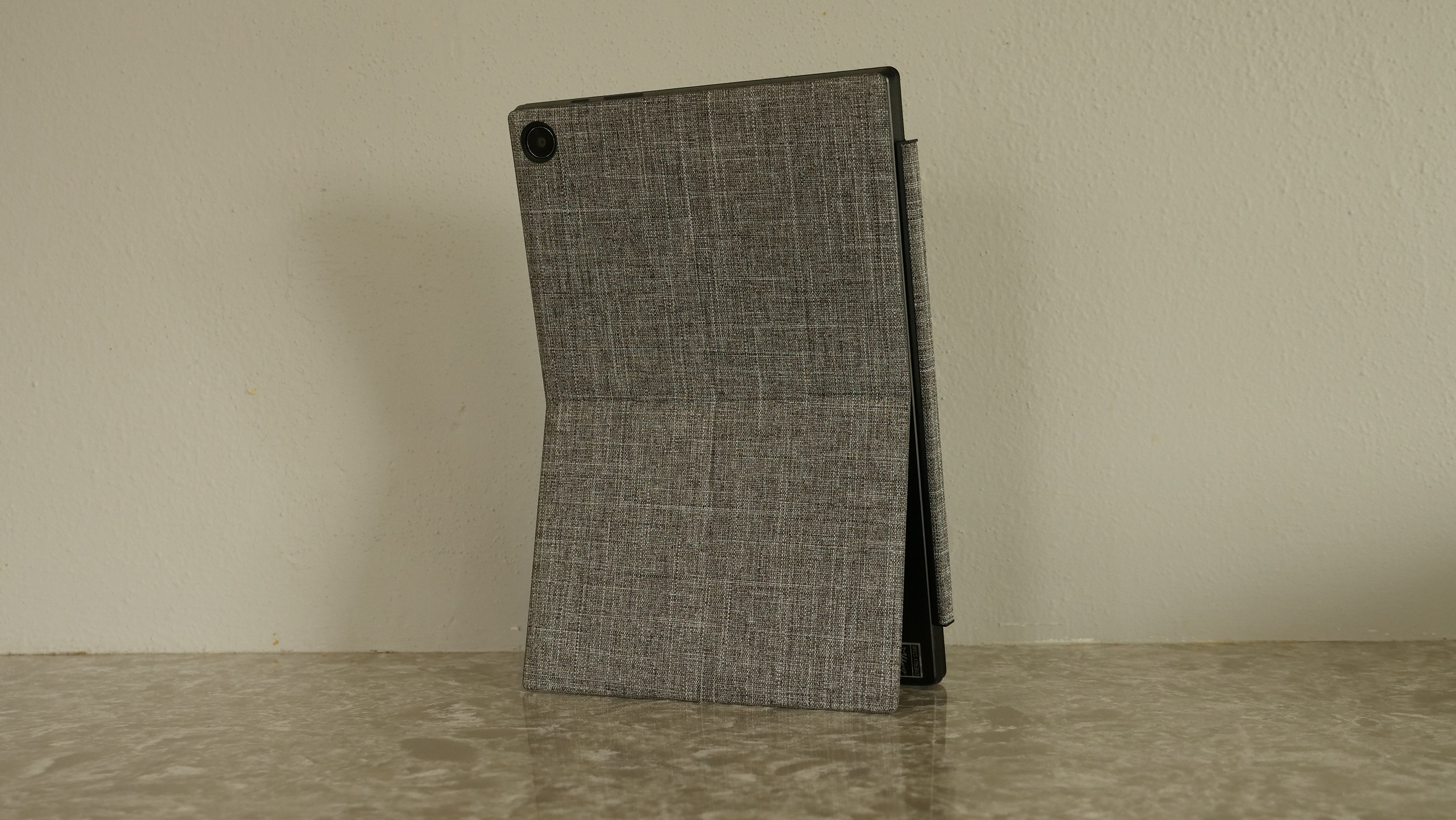
Asus Chromebook Detachable CM3 design
I’m a sucker for a fabric finish on tech products; the incongruity of it is satisfying, so the dark grey fabric that wraps the exterior of the Asus Chromebook Detachable CM3 gets two thumbs up from me. My first reaction was that it feels a bit like a well-worn old book until you pop open the cover and are greeted by Chrome OS and a keyboard.
This is all the work of the magnetized case and keyboard that attach to the tablet. By itself, the slate has a standard metallic black finish, but where’s the fun in that? Besides leaving you feeling like you are cracking into a hardbound book from the 18th century, that fabric exterior houses several helpful design elements.
The most crucial is the keyboard which I'll dig into later in this review. If, however, you don’t need the keyboard, the rear cover acts independently. Beyond the pleasing texture and protection for your tablet, it doubles as a kickstand that can hold the tablet horizontally or vertically at almost any angle.
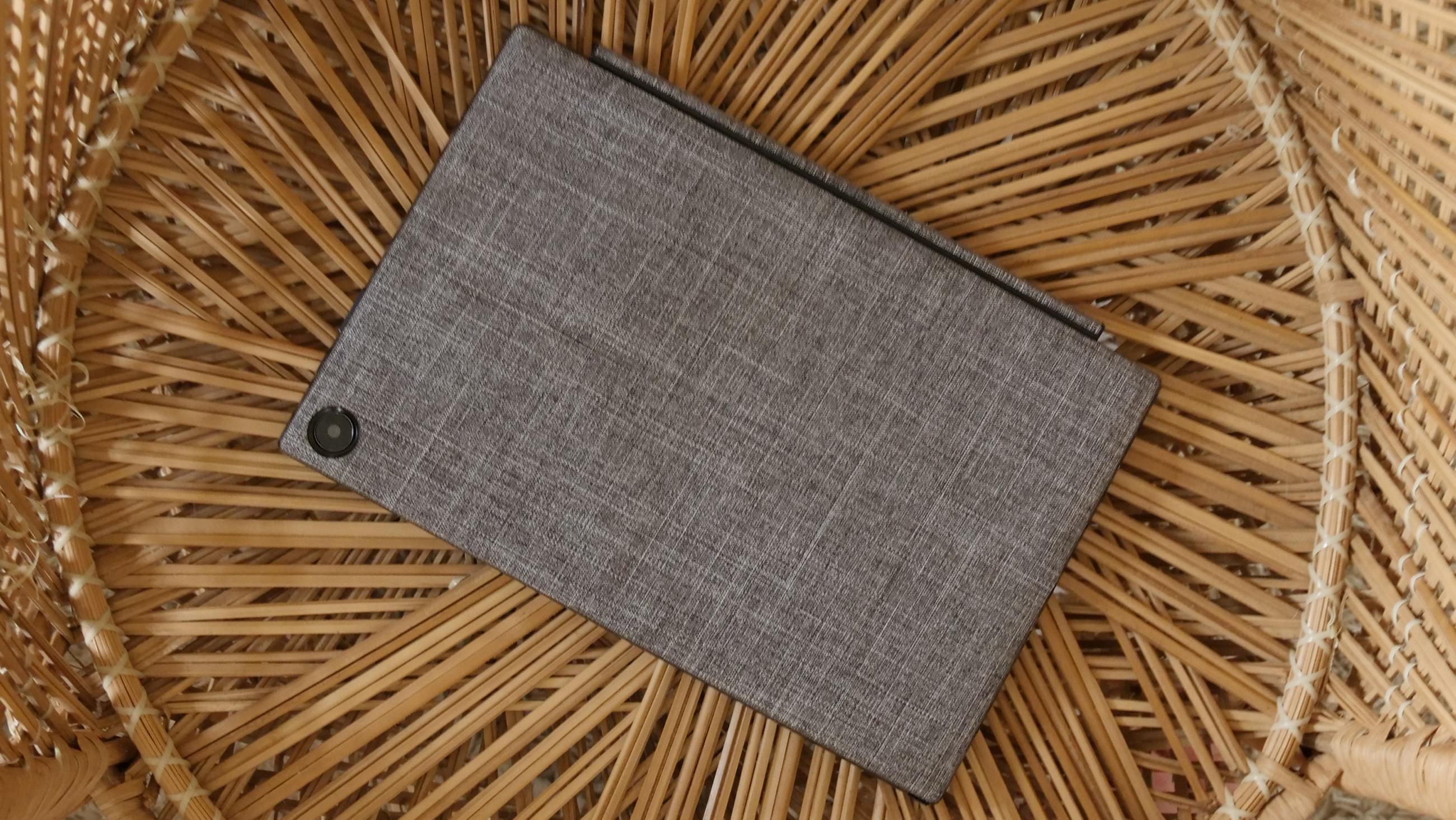
Stripped down to its tablet-only form, the Detachable CM3 comes in at 10.1 x 6.6 x 0.3-inches and 1.1 pounds, while fully clad in its case and keyboard bumps it up to 10.3 x 7 x 0.6-inches and 2 pounds. It can slip into virtually any bag in either form and is still slim and lightweight compared to its competitors.
Last year’s Lenovo Chromebook Duet (9.6 x 6.7 x 7-inches, 2 pounds) bears more than a passing resemblance to the Detachable CM3 including the nearly identical dimensions. The HP Chromebook x360b (11 x 9 x 0.7-inches, 3 pounds) isn’t considerably larger than the others, but its traditional convertible 2-in-1 form factor means a robust hinge and a significant bump in weight.
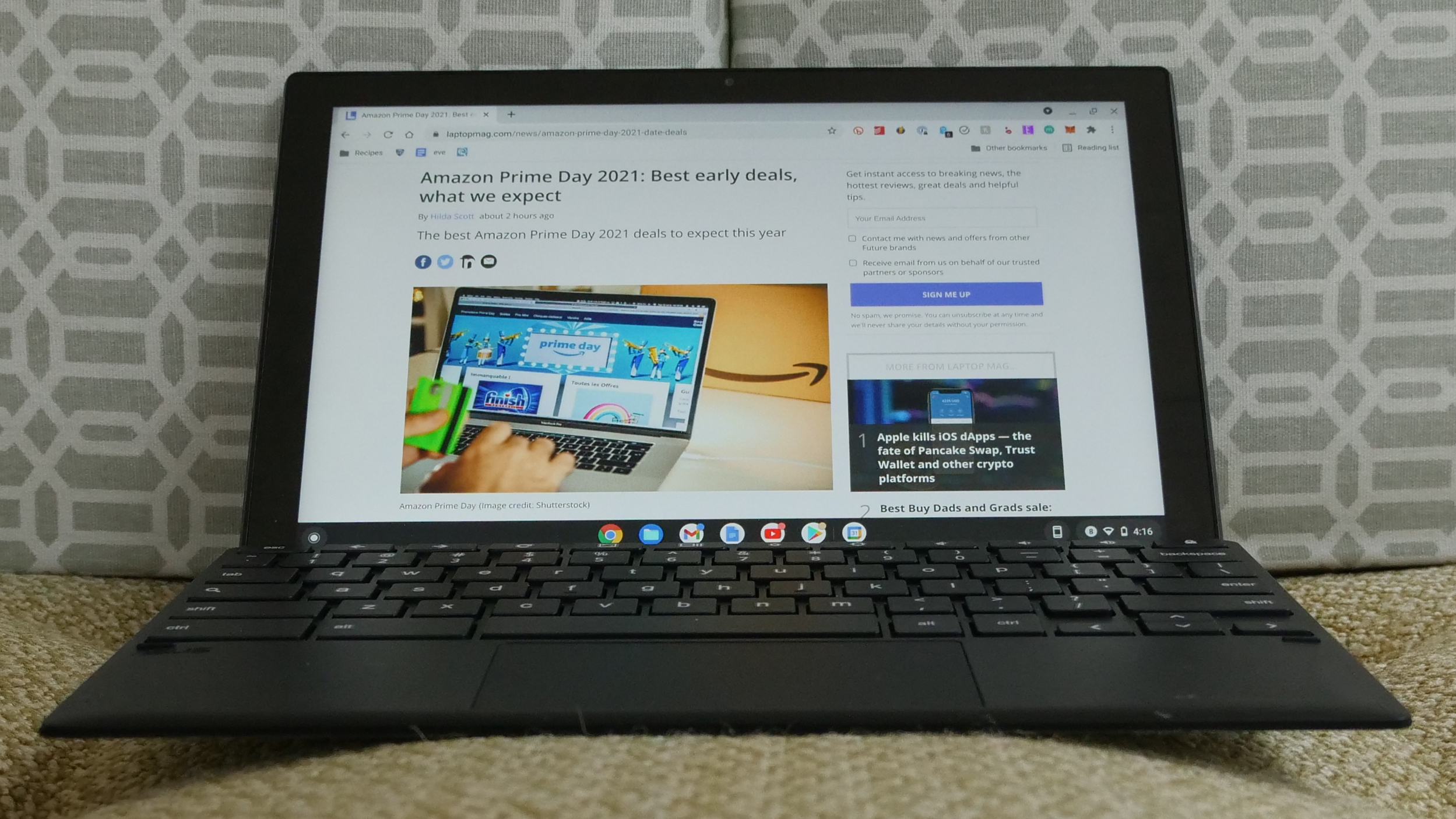
You don’t need to be too concerned about hauling the Detachable CM3 everywhere in your bag as it meets U.S. MIL-STD810H standards for bumps, shocks and temperature changes. Bolstered by the case and keyboard, it has quite a bit of protection and, if you are worried about that fabric covering, it's stain-resistant.
With or without its grey tweed covering, the Asus Chromebook Detachable CM3 pulls off a professional look. But it’s got quite a bit more style and panache with the covering on. I wish Asus had some more color options for the detachable exterior. Given the design, performance and durability, this would be well-suited for students who may prefer more lively color choices.
Acer Chromebook Spin 514 ports
The Asus Chromebook Detachable CM3 has two ports: a USB 2.0 Type-C and a 3.5mm headphone/mic combo jack. This isn’t particularly surprising given that this is a tablet. But it would have been nice to get a more up-to-date USB Type-C port.
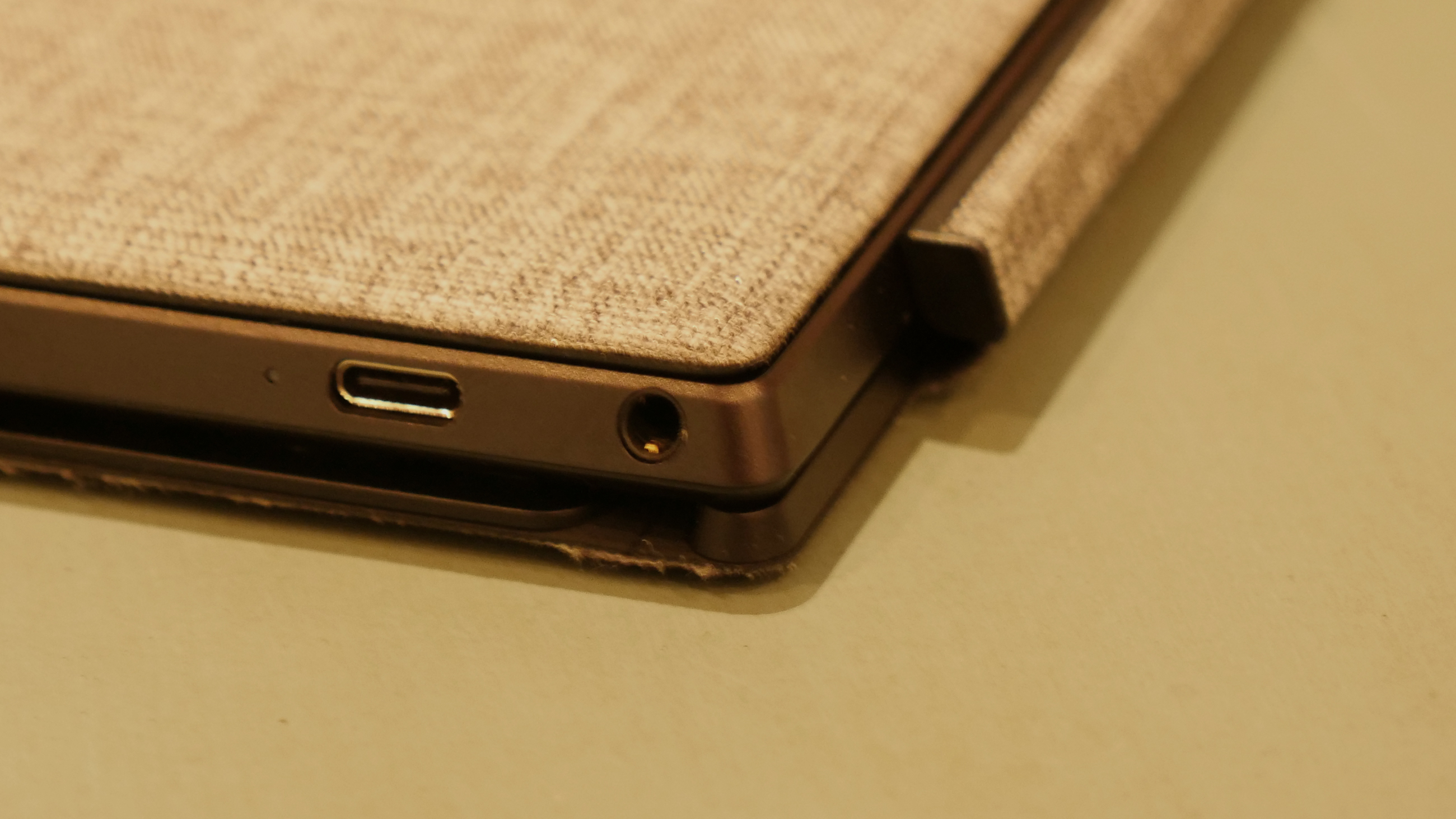
The MediaTek processor precludes it being a Thunderbolt 4 port and most people aren’t going to miss the added bandwidth from this budget machine. However, USB 3.0 or 3.1 would have been better as you’ll need to consider the limitations of the USB 2.0 port if you decide you want a USB Type-C hub to expand your port options. It's not a massive concern, but given the slightly elevated price compared to some of its competitors, a faster USB port would have been a welcome upgrade.
Asus Chromebook Detachable CM3 display
The Asus Chromebook Detachable CM3’s 10.5-inch, 1920 x 1200-pixel touchscreen display was a bit of a shock to me as it produces a far more colorful and sharper image than I had expected at this price range.
The 16:10 aspect ratio is ideal for viewing content. And the incredibly versatile stand built into the cover means you can angle it however you see fit. Also, if you are looking for a giant screen to watch vertical video content on, the stand is your huckleberry there too. I watched the trailer for the upcoming Hugh Jackman and Thandiwe Newton film "Reminiscence" and a night scene over a sunken city impressed with the colorful neon signs popping while the subtle sunset faded gradually to complete blackness on the other side of the sky. For a standard LCD, it does not disappoint.
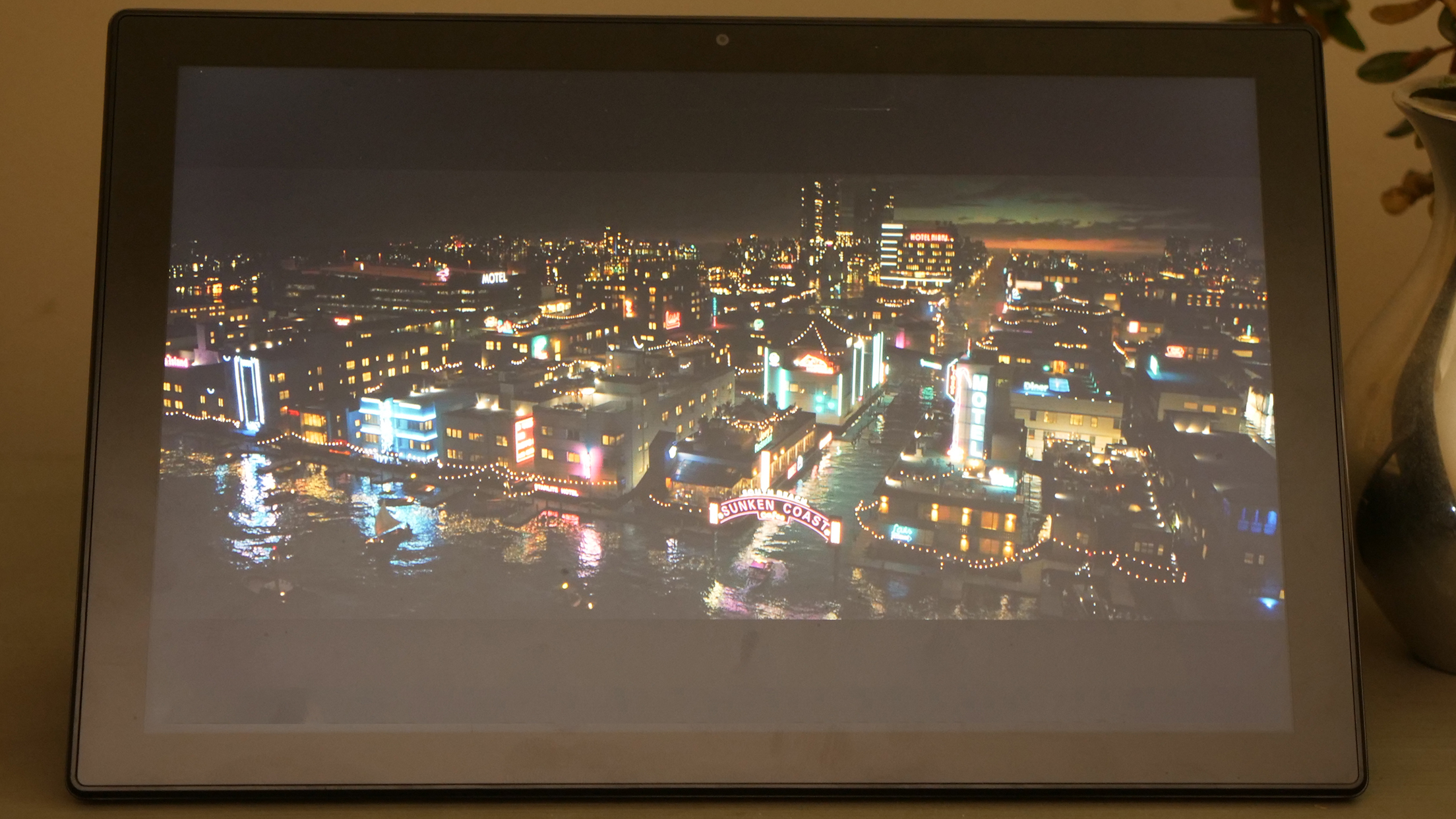
The colorimeter backed my findings with the Detachable CM3 covering 93.6% of the DCI-P3 color gamut. That’s the best result we’ve seen in this price range by a reasonable margin, well ahead of the Lenovo Chromebook Duet (74.9%), the HP Chromebook X360 12b (55.7%), and the Chromebook average (70%). If you need this to be primarily a content consumption device then the CM3 one of the best options for under $400.
The brightness test was nearly as impressive with the Detachable CM3 hitting an average of 386 nits. That edged out the Lenovo Chromebook Duet (372 nits) and may as well be the surface of the Sun compared to the Chromebook x360 12b (216 nits). You’ll have no problem overpowering even reasonably bright environments with the Detachable CM3.
The one display test where the Detachable CM3 came up short was on Delta-E color accuracy. You want a result as close to zero as possible and the Detachable CM3 only mustered a 0.34, well behind the Lenovo Chromebook Duet (0.2) and even bested by the HP Chromebook x360 12b (0.3). With that said, unless you are using this Chromebook for work where color accuracy matters, which seems unlikely, this probably won’t matter to you.
Asus Chromebook Detachable CM3 keyboard and touchpad
The Asus Chromebook Detachable CM3 includes a keyboard with touchpad that snaps onto the tablet with magnets. It maintains a connection with pogo pins and a pair of protruding nubs that slot into the tablet to hold the slate firmly in place. The hinge that connects the two serves to lift the tablet up a bit and create a more comfortable typing angle.
The thin keyboard doesn’t allow for full-blown laptop usage, but on a solid surface, it holds up well and the keys offer a surprising 1.5mm of key travel. Testing my speed using the 10fastfingers.com typing test, I managed 80 words per minute with 97% accuracy, which not too far off my typical 86 wpm with 98% accuracy. It did take me about an hour of use before I adjusted properly to the smaller keyboard, so keep that slight learning curve in mind.
As is expected with a laptop this size, the touchpad is small at 2.8 x 1.9-inches. I didn’t have any trouble with basic gestures and navigation, but given the small size, I often turned to the touchscreen instead. If you are looking to maximize productivity, I would consider picking up a dedicated mouse like the Logitech MX Anywhere 3 or MX Master 3, but for general usage, the touchpad and touchscreen work well enough.
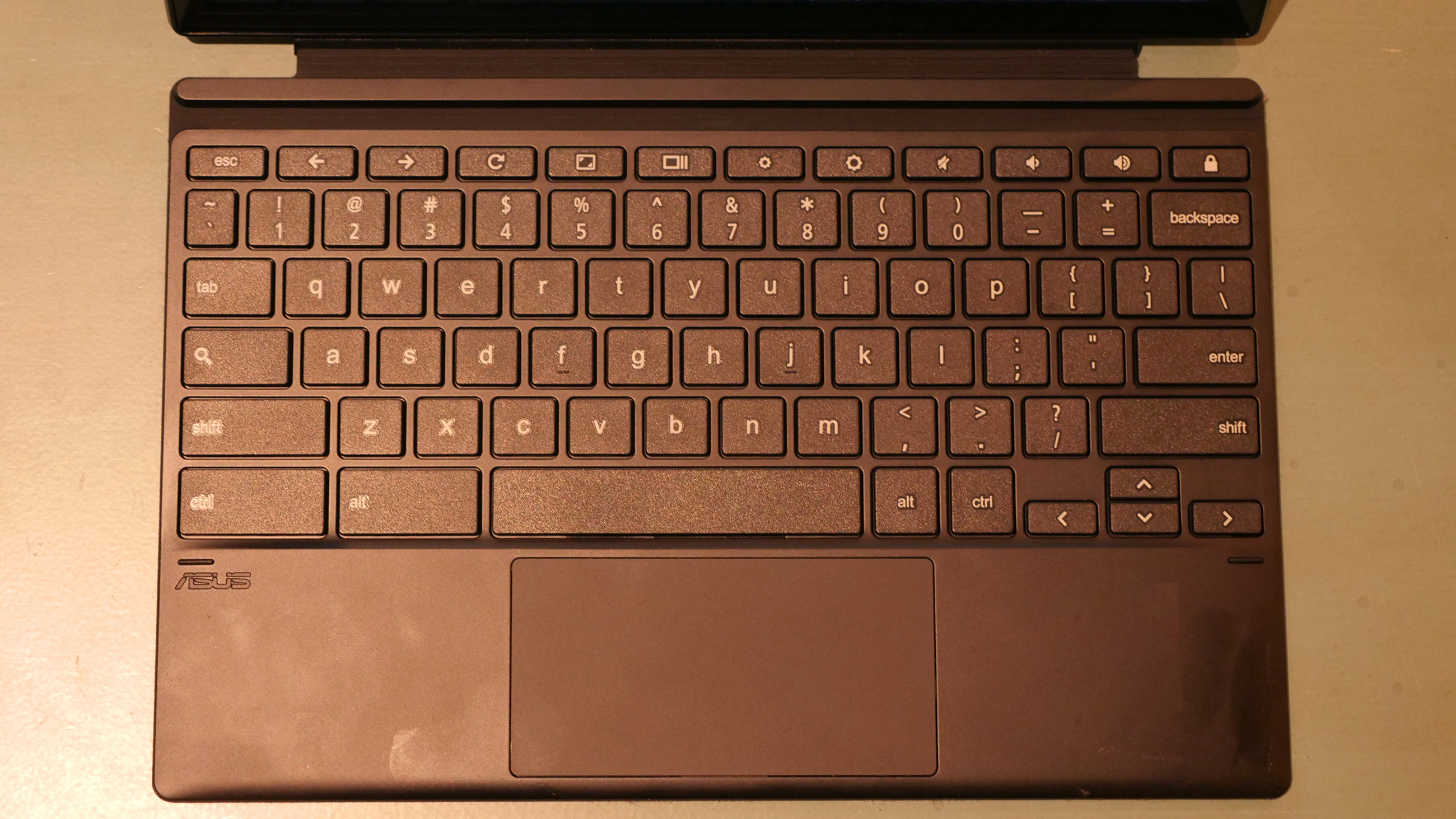
Asus Chromebook Detachable CM3 stylus
Asus ticks off two of the boxes on our list of how to fix 2-in-1 laptops by including a stylus in the box and having a stylus slot to house it. I don’t think a digital artist is going to craft their next masterwork with the USI stylus, but it works excellently for general note-taking and basic sketching.
Just 15 seconds in its port will juice it up for another 45 minutes of use, so battery life should never be an issue. The slightly rounded rectangular design is reasonably comfortable to hold and, while it’s quite thin, it is long enough that it doesn’t feel awkward to write or draw with.
Asus Chromebook Detachable CM3 audio
The Asus Chromebook Detachable CM3 has dual five-magnet stereo speakers that are better than they have any right to be. They output an impressive level of volume, easily filling my 18 x 12-foot listening space, and manage to maintain clarity throughout the range. Still, if you are looking for something that can hit heavy bass, you’ll need a pair of headphones (wired or wireless) to use with the Detachable CM3, but for watching videos or less bass-heavy music, these speakers are more than enough.
I listened to “Late At Night” by Roddy Ricch and the speakers delivered flawlessly on the artist’s blended rapping and singing. There’s not a lot of instrumental complexity to the song and minimal bass, so this was a great showcase for the speakers. And while it may not be an audio feature, the “Thriller” nod in the video might have been enough to win me over.
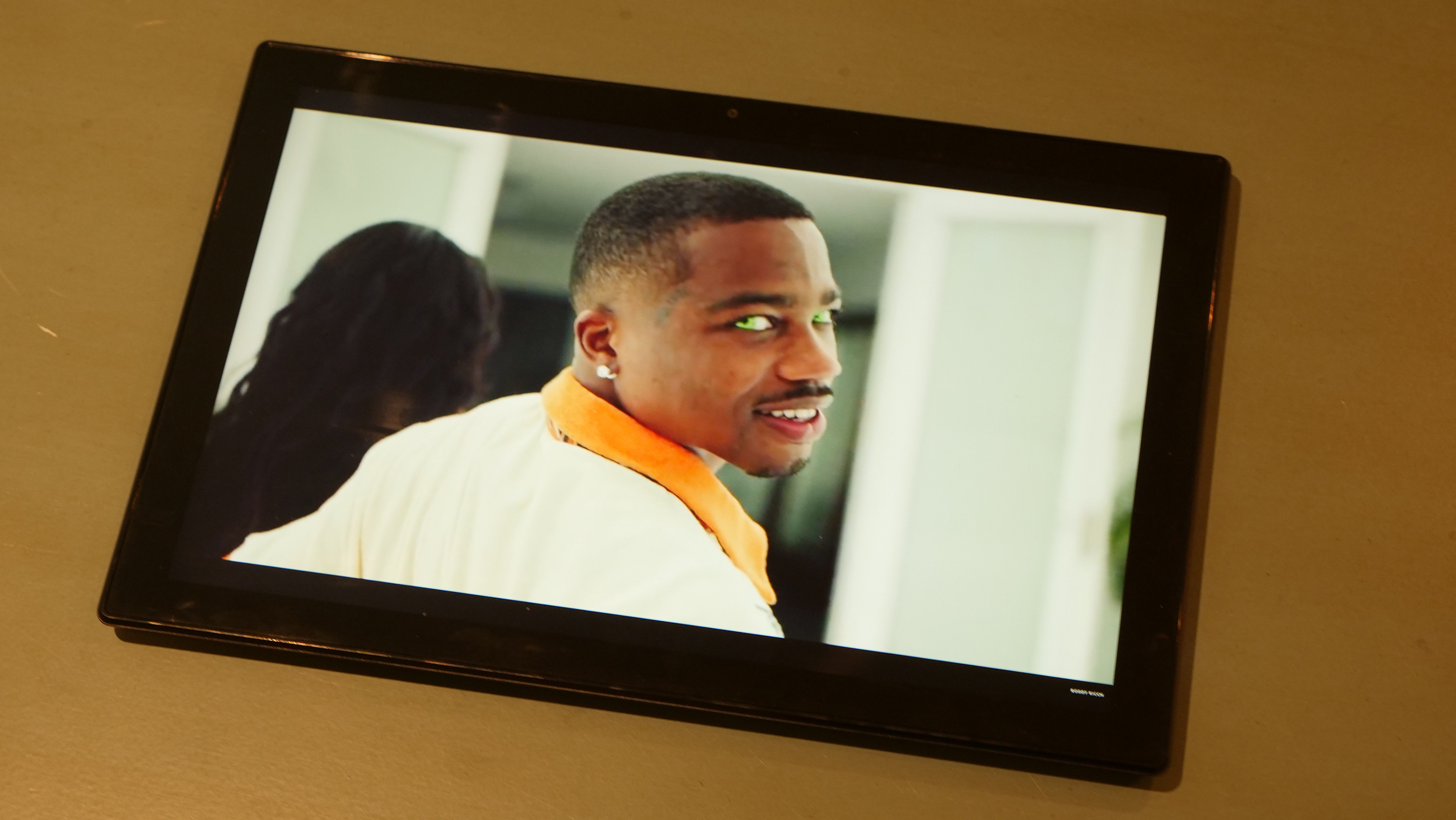
Asus Chromebook Detachable CM3 performance
The MediaTek MTK 8183 processor in the Asus Chromebook Detachable CM3 is an improvement over the Intel Celeron options found in many budget Chromebooks. However, the chip isn't going to blow you away. Both variants of the Detachable CM3 feature 4GB of RAM and Integrated Arm Mali-G72 MP3 graphics, which is the bare minimum for decent performance on a Chromebook.
I loaded about 24 Google Chrome tabs with a YouTube video running at 1080p in the background then spent some time working on this review in Google Docs. Loading apps and some of the Chrome tabs would take a couple of beats, but once they were running, I didn’t see any stuttering. Swiping through pages with the touchscreen or the touchpad was equally smooth.
The benchmark performance in the Geekbench 5 overall performance test wasn’t glowing for the Detachable CM3 which scored a 1,412. That was considerably better than the Chromebook x360 12b (802), but distantly behind the Chromebook average (2,590). The proliferation of $500 and up Chromebooks explains some of the problems, but at nearly $400 for my review configuration, it feels like the Detachable CM3 should be capable of more.
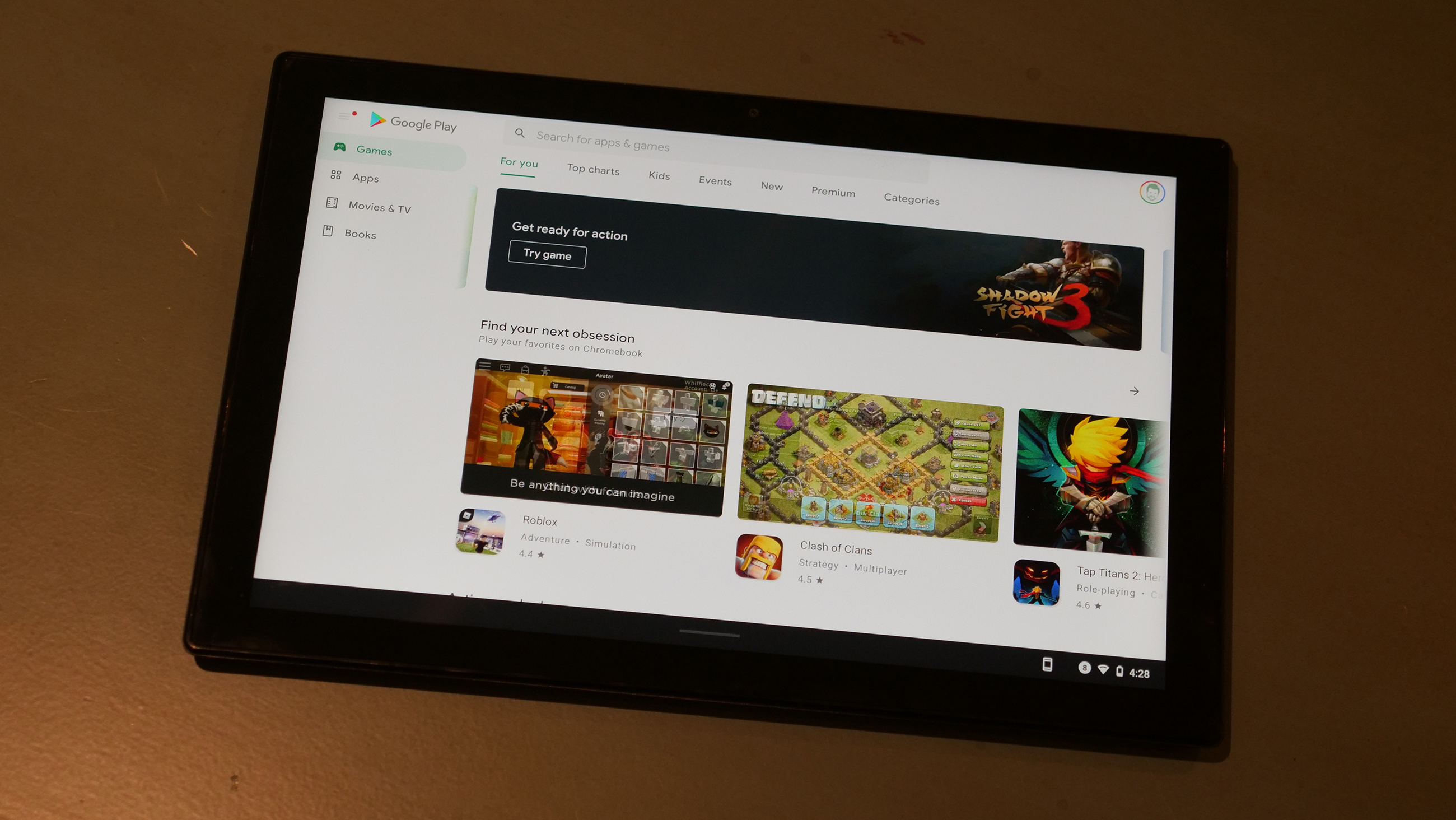
The Jetstream 2 benchmark, which tests web-browsing performance, didn’t go well for the Detachable CM3 either with a score of 33.2. That narrowly outperformed the Lenovo Chromebook Duet (31.9), but was behind the Chromebook x360 12b (49.7) and the average Chromebook (101.1).
For its intended purpose as a casual browsing and content consumption device, the Detachable CM3 holds up just fine on the performance front. If you are looking to do anything more, it will come up short. For a budget Chromebook that is knocking on the door of mid-range Chromebooks, it should fare better.
Asus Chromebook Detachable CM3 battery life
I wasn’t entirely sure what to expect of the battery life on the Asus Chromebook Detachable CM3 given the diminutive size of the tablet and its MediaTek processor. Fortunately, the power-sipping processor won out. In our Laptop Mag battery test, which involves continuous web surfing over Wi-Fi at 150 nits of brightness, the Detachable CM3 lasted 11 hours and 41 minutes.
That’s well beyond the Chromebook average (9:55). And while that was a bit over an hour shy of the Lenovo Chromebook Duet (12:46), it dramatically outperformed the HP Chromebook x360 12b (8:06). Anything beyond 10 hours is usually sufficient for even fairly heavy users, so almost making it to 12 hours is taking a few victory laps.
As the Asus Chromebook Detachable CM3 is more of a tablet replacement than a traditional laptop replacement. As such, I used it more as a tablet during most of my testing. That translates to me jumping in and out of browsing, doing some light writing, and watching Netflix or YouTube on it. I easily made it two to three days before I needed to recharge.
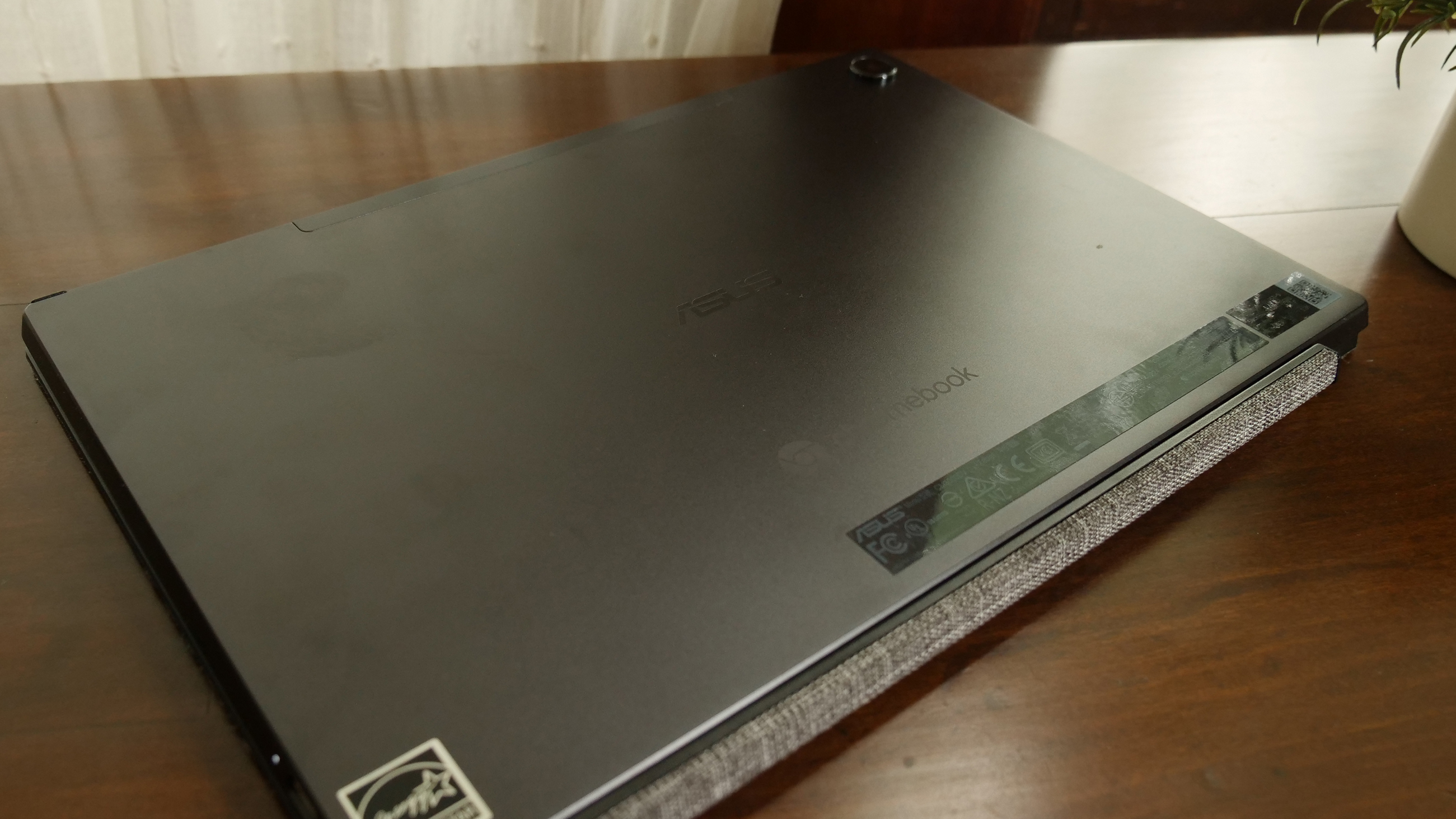
Asus Chromebook Detachable CM3 webcams
The Asus Chromebook Detachable CM3 includes two cameras, a 2MP front-facing camera and an 8MP rear camera. While you shouldn’t expect mind-blowing results, I was pretty happy with the clarity of both cameras. In my office, where I have pretty extensive lighting controls, I got a good result. In challenging lighting conditions, it’s going to fall down, but that’s true of virtually any laptop webcam.
The rear camera is a nice extra for school or work as it can do service as a scanner. I’d stress that even the least expensive budget phone is going to outperform the cameras on the Detachable CM3, and do not under any circumstances try to get anything usable with portrait mode.But overall, it holds up well to its Chromebook competition.
If this is your primary device for video conferencing or video chat and you want the best results you should pick up an external webcam, however, it’s good enough for casual use.
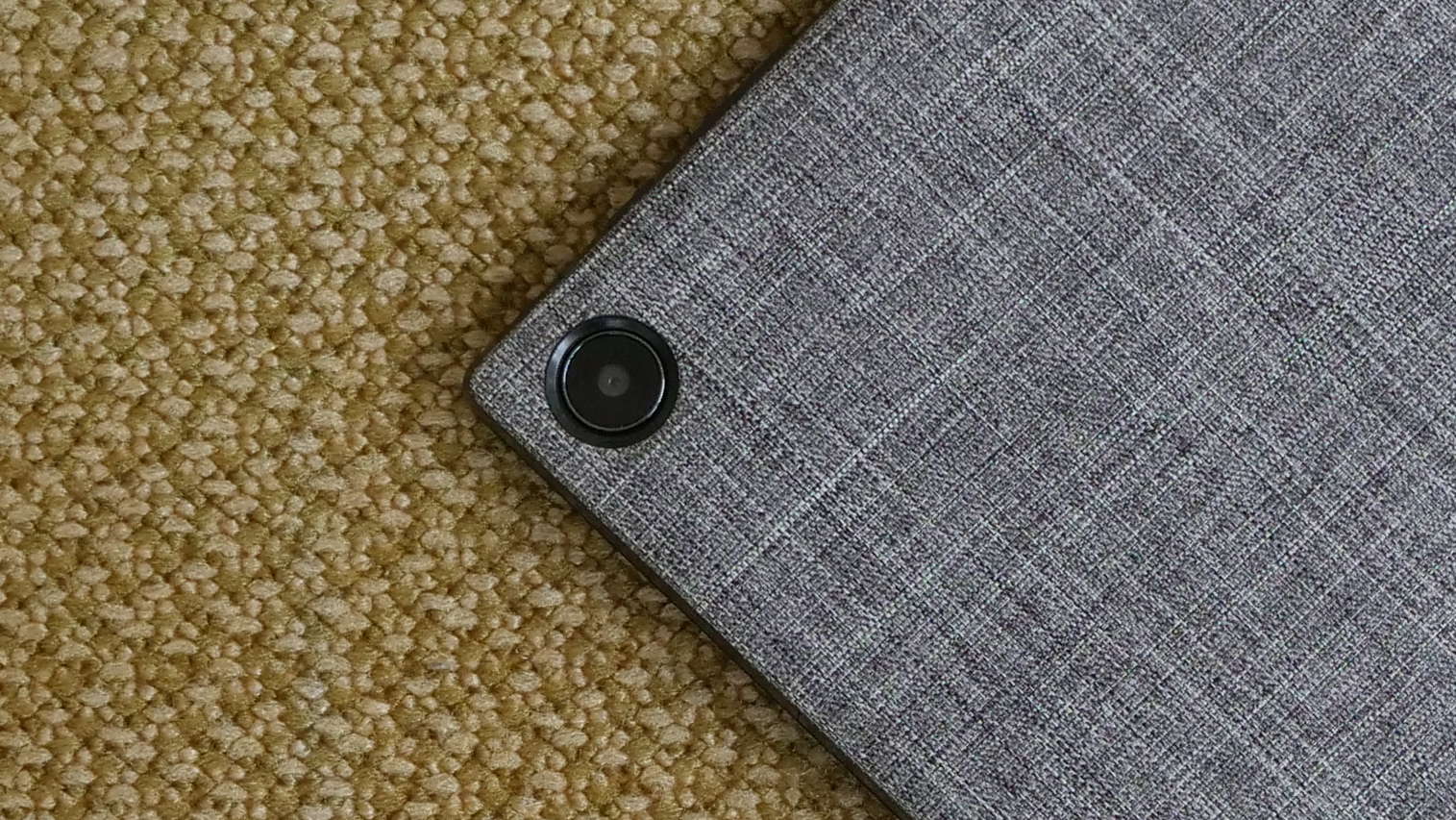
Asus Chromebook Detachable CM3 software and warranty
The Asus Chromebook Detachable CM3 ships with Chrome OS. As is typically the case, this means that there’s no bloatware to speak of. For anyone who is either a Chrome OS or Android user, the setup is a breeze as you just enter your Google account info and all of your Google Drive, Docs, Sheets and Slides files will be available along with your Chrome browser extensions and settings as soon as setup is complete.
The Android app support on some Chromebooks can be a bit awkward as the laptop form factor isn’t always ideal for them. Still, the Detachable CM3’s 10.5-inch 16:10 tablet layout works great for basic Android games and apps. Chrome OS will ask during setup if you want to install your Android apps, you can add them all or just pick a smaller subset for the tablet.
Chromebooks aren’t the online-only devices they once were with extensive offline support, Android app support, Google Assistant, and more, making them a more fully-fledged laptop experience. With that said, you should still verify that there isn’t any software you rely on that's not available online or via an Android app. You can always install Linux on your Chromebook or set up a remote desktop connection if you have an alternative laptop or desktop, but those are extra hoops to jump through.
The Asus Chromebook Detachable CM3 comes with a one-year limited warranty. You can see how Asus fares on this front in our Tech Support Showdown and Best and Worst Brands special reports.
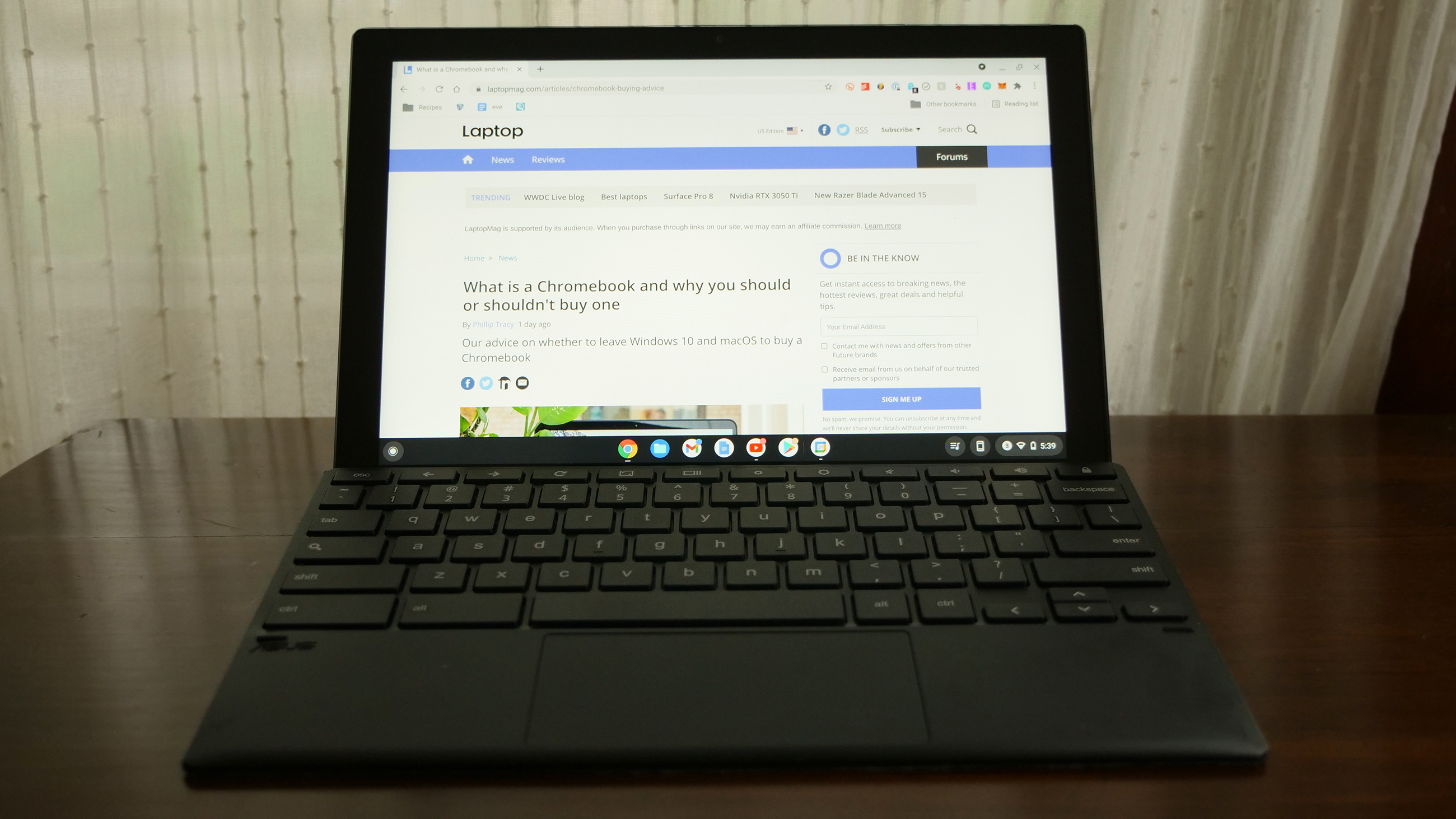
Bottom line
The Asus Chromebook Detachable CM3 appears to follow some of the ideas that we saw with the Lenovo Chromebook Duet, a budget Chromebook that thoroughly impressed us last year. However, Asus has implemented many additions to that formula that make this the more compelling option for some users. This includes a superior built-in stand that can go vertical or horizontal, a brighter and more vivid display, and the handy inclusion of a stylus.
The $389 price tag for my review unit feels steep given the somewhat lackluster performance of the MediaTek MTK 8183. However, the base model at $329 eases that considerably, and given that streaming and web browsing are going to be the primary use cases for this 2-in-1, the 64GB storage shouldn’t be a concern.
The laptop just launched so you aren’t likely to find any deals in the short term. But if this drops below $300, it is an absolute steal. And those who appreciate the style and form factor should consider the base model as it's a reasonable value at its retail price.
Sean Riley has been covering tech professionally for over a decade now. Most of that time was as a freelancer covering varied topics including phones, wearables, tablets, smart home devices, laptops, AR, VR, mobile payments, fintech, and more. Sean is the resident mobile expert at Laptop Mag, specializing in phones and wearables, you'll find plenty of news, reviews, how-to, and opinion pieces on these subjects from him here. But Laptop Mag has also proven a perfect fit for that broad range of interests with reviews and news on the latest laptops, VR games, and computer accessories along with coverage on everything from NFTs to cybersecurity and more.
